Broken footpaths, leaky taps, or uncollected garbage, life in Mumbai must come with a crash course in grievance redressal methods. But it’s only easy to lodge complaints with BMC, not get them resolved.
Brihanmumbai Municipal Corporation (BMC) is good at taking citizen complaints. You can call BMC’s 1916 helpline where an Interactive Voice Response (IVR) will direct you to an operator who will note your complaint. Or you can log on to the BMC website where “complaints” is an easy find on the menu. Choose your preferred language and fill an online complaint form selecting your complaint category from the 26 in the drop down.
You can also download the MyBMC 24X7 app but it is not necessary that the app will let you sign in (it didn’t let me). The app’s 1.6/5 rating and 2,000 mostly angry reviews concur. The app aside, it’s fairly easy to lodge a complaint with BMC. It’s the complaint’s satisfactory resolution that’s harder.
What BMC does with complaints
Operators manning the BMC helpline say that they get all kinds of complaints: from civic issues such as water, waste management, encroachments, dead animals to graver problems related to disaster management at the time of monsoons.
They first note the complaint with the complainant’s details. Then the complaints, from the helpline and the online dashboard, get logged into the BMC’s SAP system.
After a centralised collection, the complaint is forwarded to the ward where it originated. If you live in Andheri (East) and have complained about irregular water supply in your neighbourhood, your complaint will be forwarded to the K-East ward office, from where it will be directed to the right department. You will also receive a complaint number that can be used to follow-up on the complaint till it’s resolved.
BMC has also appointed Complaint Officers in its 24 wards to help fastrack complaints. “We are the coordinators between citizens and various departments,” Surendranath Naik, Complaint Officer, R/South Ward, says.
On any given day, Surendranath looks at complaints collected online or through calls on 1916. These complaints are earmarked to the concerned department. A large part of his job is to follow-up with department heads about progress and closure. Once there is an update, the complainant is informed. Twitter complaints, Surendranath clarifies, are handled separately.
The R/South Complaint Officer says that if he receives complaints that are outside BMC’s purview such as complaints directed towards other government agencies such as MHADA or the Fire Department, he forwards it to them.
This is how the system is supposed to work.
But does it?
Read more: How the pandemic hit BMC’s coffers
Complainants left high and dry
Last week, BMC issued guidelines on the ongoing bird flu scare. The municipal corporation asked citizens to be vigilant and report any bird deaths by calling 1916. Devangi Dave did that. It was past 7 pm in her locality when she called the helpline to report a dead bird lying in her neighbourhood. The operator on the helpline, Devangi says, asked if she could dispose the bird herself and offered instructions on how to do it. “They told me that they would take a while to arrive, so I chose to take matters in my own hand,” she says.
This is not the first time Devangi has complained to the municipal corporation. But usually, she says, “I prefer to approach my local area corporator with any issues,” Any kind of resolution via the centralised helpline, she says, is cumbersome and laborious.
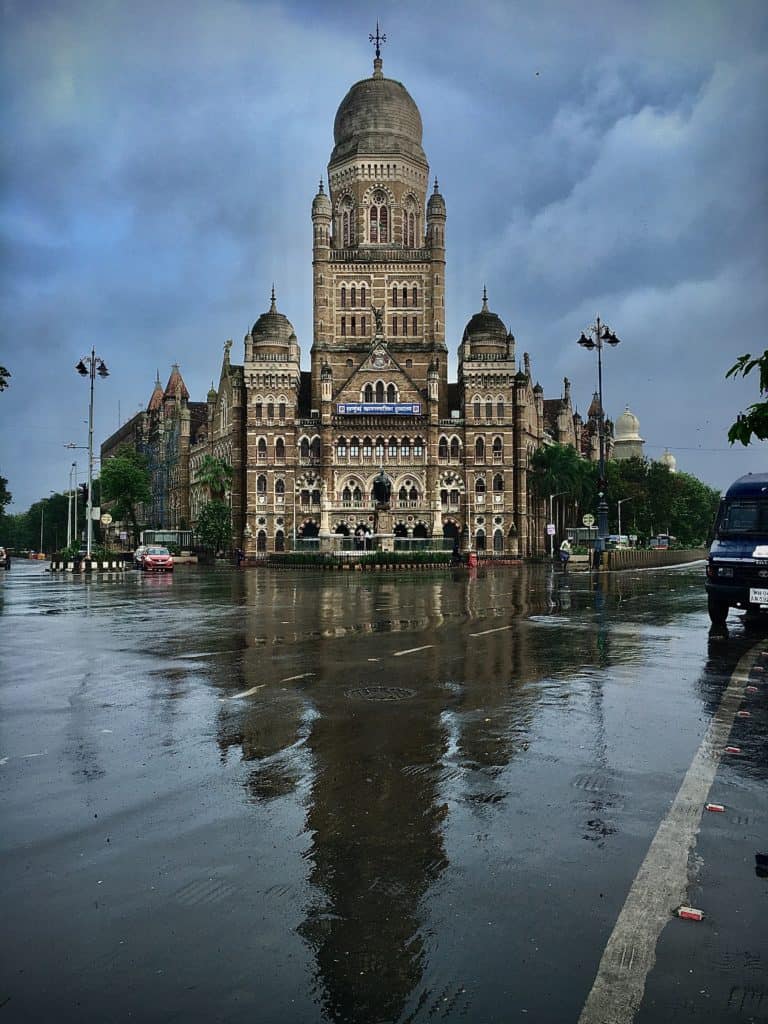
Closing complaints
In 2016, BMC received 81,555 complaints. The number rose to 92,329 in 2017 and 1,16,658 in 2018, according to information collected by city-based NGO Praja.
While 58% complaints were closed in 2016, 83% complaints were closed in 2017 and 2018. The number of days required to close complaints rose from 19 in 2016 to 48 in 2017 and fell marginally to 46 in 2018. According to BMC’s Citizen Charter, it should only take three days to close complaints.
Certain parts of Mumbai were better at closing complaints than others. Wards A (Colaba), H/W (Bandra), and R/S (Kandivali) closed 99% of their complaints in 2018. Mulund and Dahisar managed to close only 45% of their complaints. Kurla, according to Praja, took the longest at 141 days to close complaints.
Complaint Officer Surendranath Naik agrees that complaint resolution has improved over time. Till the last decade, Complaint Officers did not have access to the complaints portal, but now that they do, they are better able to coordinate for complaint closure.
The job of a Complaint Officer, however, is transferable like other jobs with the municipal corporation. Of the many Complaint Officer numbers publicised on the BMC website, many are no longer at the post. In their absence, the clerical staff looks at complaints, the ward office operators told Citizen Matters.
“If there’s a complaint related to an encroachment, we have to first investigate and send a notice. Such complaints take time,” Surendranath says. Others, he says, especially complaints related to water and garbage, are disposed promptly. Solid waste is one of the top five citizen complaints in Mumbai.
Praja’s 2019 report finds that it took 17 days on an average to close complaints of garbage lifting, 20 days for ‘collection point not attended’ and 22 days for ‘garbage vehicle not arrived’.
Read more: Care about Mumbai? Here’s what you can do to make it better
BMC’s aversion to open data
Organisations like Praja have had to file Right to Information (RTI) applications to unearth this data. BMC does not openly share this data for citizens and researchers to analyse strengths or gaps in its grievance redressal systems. Other city governments do.
You might be familiar with North America’s 911 helpline for emergencies, but the US and Canada also run a 311 non-emergency helpline for municipal services.
In 2003, the largest 311 operation commenced in New York City, and it continues to date. New York City 311 portal shows open and recently closed service requests on a map. Viewers can zoom in and out of the map to see exactly the service issues citizens have raised across the city. It could be about road damage, water supply, unsanitary condition or a rodent infestation.
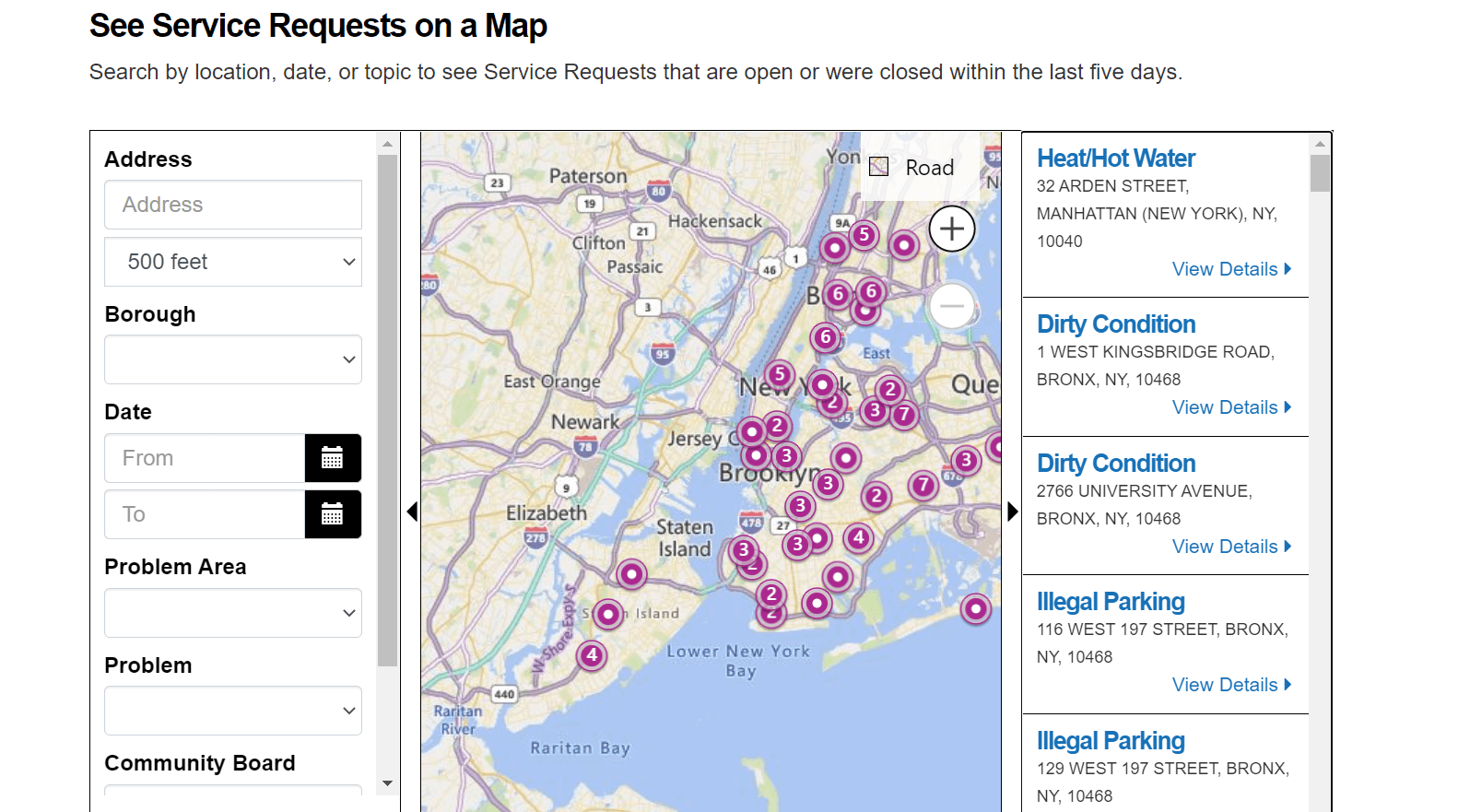
What’s important is that New York has an open data portal where people can visualise or download all 311 service requests lodged since 2010.
Across North America, 311 has led to a variety of govtech solutions where apps and work management softwares are helping governments document and resolve service requests. But city governments in India have been unwilling to share data or innovate. Nor are there well-publicised or barrier-free mechanisms for citizens to share feedback.
A world-class city needs world-class practices. If Mumbai aspires to become one, it may have to start by venturing into the world of open data.
Also read:
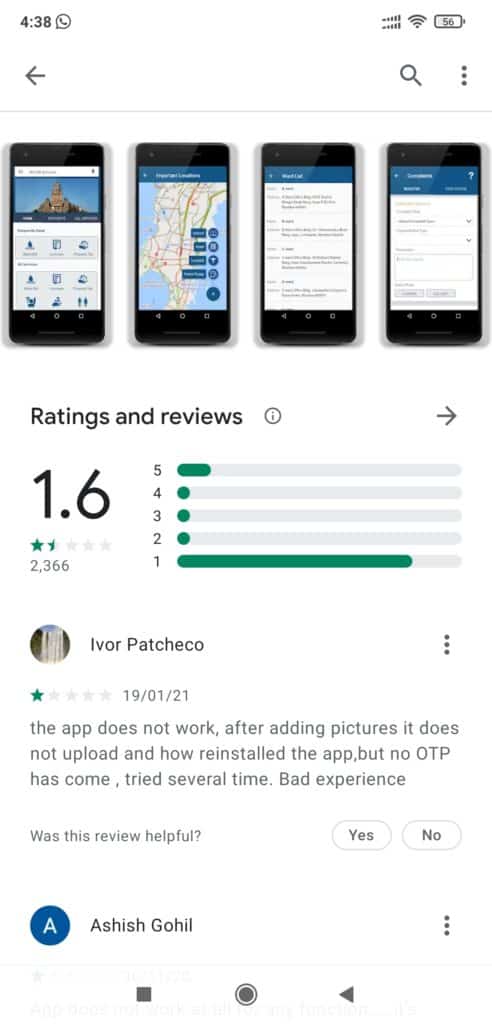
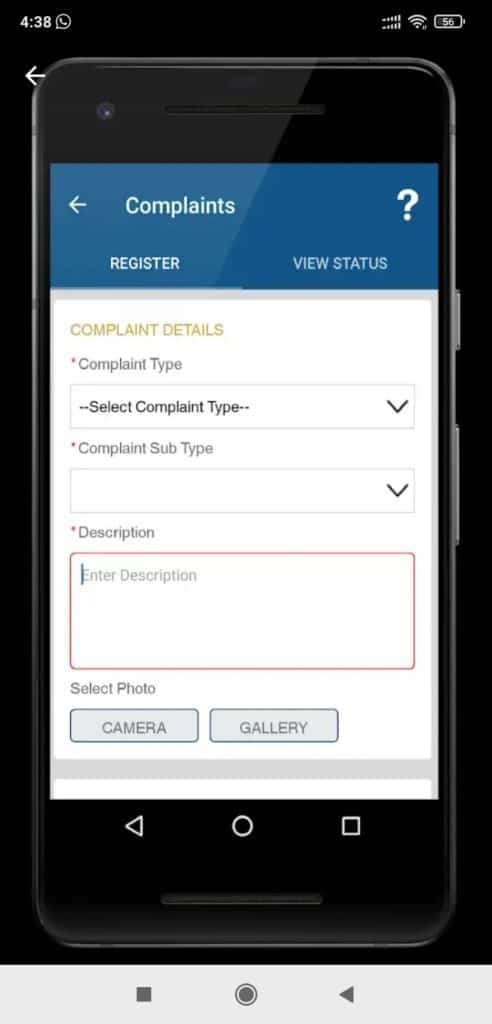
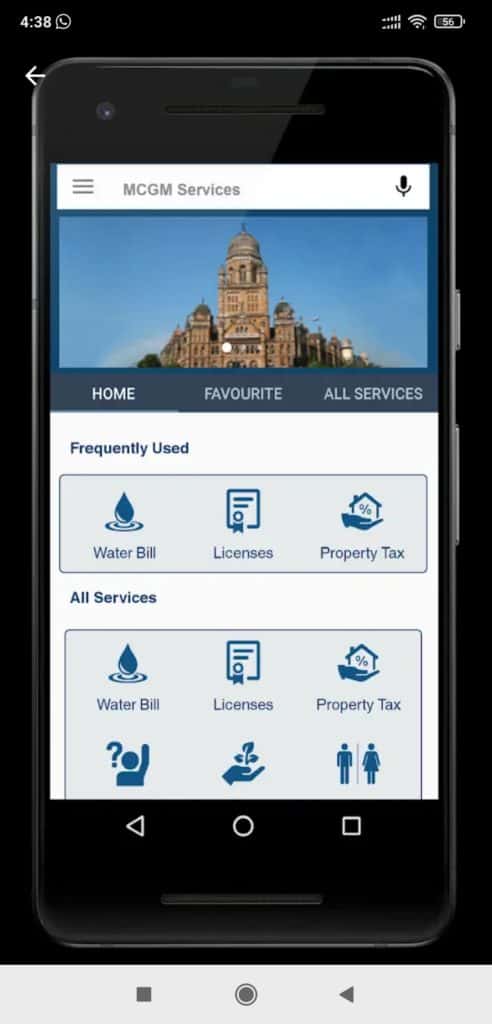
I senior citizen of 77 yrs old residing at gokuldham goregaon East mumbai Sai Rd has been dugup since 4 months little work done now since last one week work stopped my photos were published on gujrati midday no response why pl take immediate action in this matter